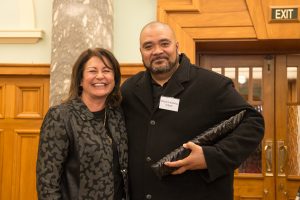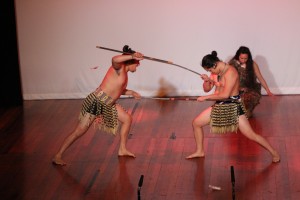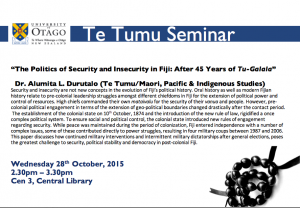Te Tumu’s Postgraduate Graduands
Te Tumu would like to congratulate its four postgraduate students who will be graduating this December.
Roma-Kiritahi Simmons-Donaldson (Ngāti Porou, Taranaki, Ngāti Tūwharetoa) is graduating with a BA(Hons) in Māori Studies. Her dissertation, “Walking in two worlds – Te reo Māori in urban New Zealand” was supervised by Dr Karyn Paringatai.
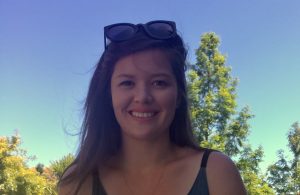 Abstract: The aim of this dissertation is to examine ways in which te reo Māori (the Māori language) can exist in urban New Zealand. Specifically, it will outline a history of te reo Māori, before looking at different ways in which language can be acquired and developed in an urban environment. It will then analyse ways in which te reo Māori has enabled Māori people to negotiate their place in urban New Zealand, in the absence of those environmental stimuli that traditionally inform and enhance a Māori identity and worldview. Central to this dissertation is the concept of intergenerational language transmission. As such, the experiences of my grandmother, mother, and myself will be presented throughout this dissertation to provide context, and to illustrate the interaction between urban migration, language, mechanisms of language acquisition and development, and identity, in a way that contextualises and enriches the literature.
Abstract: The aim of this dissertation is to examine ways in which te reo Māori (the Māori language) can exist in urban New Zealand. Specifically, it will outline a history of te reo Māori, before looking at different ways in which language can be acquired and developed in an urban environment. It will then analyse ways in which te reo Māori has enabled Māori people to negotiate their place in urban New Zealand, in the absence of those environmental stimuli that traditionally inform and enhance a Māori identity and worldview. Central to this dissertation is the concept of intergenerational language transmission. As such, the experiences of my grandmother, mother, and myself will be presented throughout this dissertation to provide context, and to illustrate the interaction between urban migration, language, mechanisms of language acquisition and development, and identity, in a way that contextualises and enriches the literature.
Future plans: “I have just accepted an offer to undertake PhD study at the University of Otago, which will look to fill a gap in the conversation surrounding bilingualism and intergenerational language transmission, and explore in depth the journey of language transmission between second language speaking parents and their first language speaking children. It is my hope that this thesis will help to increase our collective understanding of the intersection of these two stark pathways of language acquisition, and help whānau who are looking to do the same.” Dr Karyn Paringatai and Professor Poia Rewi will supervise Roma’s doctoral thesis.
Pia Cristóbal Kahn undertook the thesis pathway for her Master of Indigenous Studies degree. Her thesis, “Sacred Katuiran: Decolonial Sensibility in the Katipunan Papers / An ‘indigenist hermeneutic’ of 19th century Tagalog revolutionary texts” was supervised by Professor Poia Rewi.
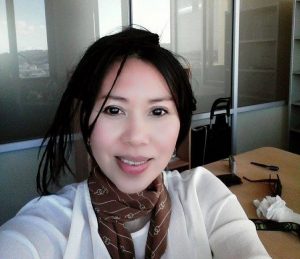 Abstract: Indigenous meanings and renderings tend to be forgotten and buried, and even erased, by non-indigenist interpretations and translations. This is a case study of an ‘indigenist hermeneutic’ approach to a re-translation of the “Kartilya” and other selected texts authored by members of the Katipunan, a 19th century revolutionary movement against Spanish colonial rule in the Philippines. The Tagalog word katuiran, which is often translated to ‘reason’, in support of a prevailing narrative in Philippine historiography that credits the European Enlightenment for primary Katipunan ideas, becomes central to the research as intertextual analyses unearth a variety of its forgotten meanings and usages, and concomitant mistranslations. A comparative conceptual analysis of katuiran and the Māori word tikanga opens up a viable hypothesis for an expanded indigenous meaning of katuiran, that necessitates the re-translation of many passages and other principle ideas of the Katipunan. This re-translation results in a re-narration that depicts an indigenous 19th- century ‘decolonial’ Tagalog movement that sought to delink from European constructs epistemically, ethically and politically; and thus, a re-narration that offers a challenge to a ‘European Enlightenment narrative’ for the Katipunan revolution.
Abstract: Indigenous meanings and renderings tend to be forgotten and buried, and even erased, by non-indigenist interpretations and translations. This is a case study of an ‘indigenist hermeneutic’ approach to a re-translation of the “Kartilya” and other selected texts authored by members of the Katipunan, a 19th century revolutionary movement against Spanish colonial rule in the Philippines. The Tagalog word katuiran, which is often translated to ‘reason’, in support of a prevailing narrative in Philippine historiography that credits the European Enlightenment for primary Katipunan ideas, becomes central to the research as intertextual analyses unearth a variety of its forgotten meanings and usages, and concomitant mistranslations. A comparative conceptual analysis of katuiran and the Māori word tikanga opens up a viable hypothesis for an expanded indigenous meaning of katuiran, that necessitates the re-translation of many passages and other principle ideas of the Katipunan. This re-translation results in a re-narration that depicts an indigenous 19th- century ‘decolonial’ Tagalog movement that sought to delink from European constructs epistemically, ethically and politically; and thus, a re-narration that offers a challenge to a ‘European Enlightenment narrative’ for the Katipunan revolution.
Future plans: “I plan to continue my research on the doctoral level, with a focus on Tagalog cultural conceptualisations, and drawing from the fields of indigenous studies, cultural linguistics, memory studies and oral history.”
Te Tumu also has two staff members who are graduating with their PhDs.
Dr Tangiwai Rewi (Waikato, Ngaati Tiipaa, Ngaati Amaru, Ngaati Tahinga) has completed a doctorate, “Examining traditional Maaori knowledge frameworks and intergenerational knowledge transmission. “Titiro, Whakarongo” – he huarahi ako noo ngaa raa o nehe.” Professor Michael Reilly was the primary supervisor, with Professor Helen May as co-supervisor until her retirement in Dec 2016, and Dr Michelle Schaaf as an Advisor.
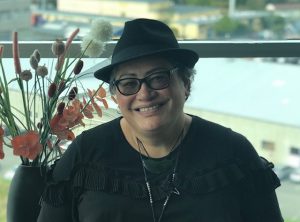 Ariaa: Abstract: This thesis investigates the way knowledge is transmitted inter-generationally, and the teaching and learning methods (or pedagogies) used to do this. The transmission referred to here relates to knowledge about practices associated with the Kiingitanga ‘kingship movement’ of which the Waikato iwi ‘tribe’ have long been the kaitiaki ‘guardians’. The pouwhirinaki ‘participants’ are from the Ngaati Tiipaa and Ngaati Amaru hapuu ‘sub tribes’ from the Port Waikato area; however, participants also came from other hapuu and iwi within the Waikato-Tainui rohe ‘region’.
Ariaa: Abstract: This thesis investigates the way knowledge is transmitted inter-generationally, and the teaching and learning methods (or pedagogies) used to do this. The transmission referred to here relates to knowledge about practices associated with the Kiingitanga ‘kingship movement’ of which the Waikato iwi ‘tribe’ have long been the kaitiaki ‘guardians’. The pouwhirinaki ‘participants’ are from the Ngaati Tiipaa and Ngaati Amaru hapuu ‘sub tribes’ from the Port Waikato area; however, participants also came from other hapuu and iwi within the Waikato-Tainui rohe ‘region’.
I set out to analyse whether there is any correlation between the traditional Maaori knowledge frameworks of old being utilised in the way we learn the roles associated with three domains on the marae ‘communal gathering place’ during three key Kiingitanga events. This thesis explores how learning was undertaken in ngaa whare waananga tawhito ‘traditional houses of learning’ before documenting my participants’ narratives about how they learned their roles. It concludes with my analysis of these findings and offers some recommendations, based on what the participants said, about cultural revitalisation looking forward.
Future Plans: After an enforced leave period from roles and responsibilities in order to complete the thesis, Tangiwai is now relishing the challenge of resuming these expectations. From January 2019 she takes on the 0.5 Academic Dean Maaori position in the Division of Humanities. This is in addition to being the new Co-chair of Poutama Maaori, the Maaori academic staff network across the Otago University campuses which she recently took up in September 2018.
On the research front she is busy implementing one of the translational priorities of her PhD research, Tuupuna Times, which encourages whaanau to record the life stories /narratives of their ruuruhi (elderly women) and koroheke (elderly men). While she has continued to teach her Maaori education papers of MAOR 213, 313 and 413, she also expects to conduct comparative research with two other New Zealand iwi and two other indigenous tribes from Northern America related to her PhD study during her pending Research and Study Leave forecast for the back end of 2020 / start of 2021.
Dr Erica Newman is also graduating, having completed a PhD on Adoption in Fiji. Associate Professors Jenny Bryant-Tokalau and Jacqui Leckie supervised Erica’s thesis, assisted by the Advisory Committee of Professor Michael Reilly and Dr Michaelle Schaaf.
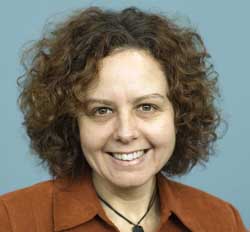 Abstract: The arrival of Europeans in Fiji, from the late 1700s, impacted the established social structures of the indigenous communities, removing what were considered inappropriate social behaviours and introducing concepts and values which altered the societal relationships and status of iTaukei (indigenous Fijians). This included the introduction of colonialist terms and practices of ‘orphan’ and ‘adoption’. Scholars such as Vern Carroll, Ivan Brady and Ward Goodenough have questioned whether the use of these terms were appropriate when referring to the traditional practices of child circulation amongst kin within Oceania. Yet the iTaukei population came to use these terms, practices and their meanings, although not entirely in the same context as the European.
Abstract: The arrival of Europeans in Fiji, from the late 1700s, impacted the established social structures of the indigenous communities, removing what were considered inappropriate social behaviours and introducing concepts and values which altered the societal relationships and status of iTaukei (indigenous Fijians). This included the introduction of colonialist terms and practices of ‘orphan’ and ‘adoption’. Scholars such as Vern Carroll, Ivan Brady and Ward Goodenough have questioned whether the use of these terms were appropriate when referring to the traditional practices of child circulation amongst kin within Oceania. Yet the iTaukei population came to use these terms, practices and their meanings, although not entirely in the same context as the European.
This thesis investigates the colonialist perspective of Fiji’s traditional child circulation and introduced European practices of child care, guardianship, adoption and orphanage institutions. The research covers a number of key topics that are relevant for this thesis. It begins with an understanding of Fijian kinship structure prior to, and just after, the arrival of the first Europeans. The research then explores colonial interventions of guardianship (the first being a consequence of the introduced Indian Indentured Labour Scheme). Missionaries brought with them the institution of orphanages and a history of these are explored (today orphanages are now known as Children’s Homes). The Child Welfare Department in Fiji is responsible for the placement of vulnerable children into safe homes. As they are an important part of guardianship and adoption today this thesis provides a history of how this scheme developed into a government department. In 1945 Fiji enacted the Adoption of Infants Act as a formal process for all children of Fiji, regardless of ethnicity, and this research follows the path of creation. Although the Adoption of Infants Act caters for all ethnicities of Fiji, ‘informal adoption’ or child circulation continued and continues to be practised by iTaukei. During the colonial period the colonial government accepted this customary practice as an acceptable form of child care.
This thesis provides a history of adoption and guardianship practices in Fiji during the colonial period of 1874 to 1970.
Future Plans: Erica will continue to work at Te Tumu, teaching and researching.
Postgraduates Graduating
Te Tumu congratulates our postgraduate students who are graduating this December.
Doctor of Philosophy
Matani Fakatotua Schaaf
Supervisors: Dr. Paerau Warbrick, Prof. Michael Reilly (until 2012, Prof. Brendan Hokowhitu)
Title: Motivation and Burnout in Professional Pasifiki Rugby Players
This thesis examined the participation motivation among professional Pasifiki rugby players. Dominated by Western theories and models, rugby participation research has overlooked the inclusion of a theory or model that is significant to Pasifiki peoples. This research identified what cultural factors exist, that motivate so many Pasifiki peoples to play rugby. This research also highlighted a mismatch between the lived realities of Pasifiki rugby players’ experiences of motivation and burnout, compared to the lived realities of Palāngi rugby players. The most notable outcome, was that Pasifiki rugby players’ experiences were dramatically intensified, by familial, cultural, spiritual and financial obligations; which manifested in burnout, mental illness, substance abuse, binge drinking and failed attempts at suicide.
Master of Indigenous Studies
Te Tumu also has two Master of Indigenous Studies (MIndS) students graduating.
Nurul Sultan, supervised by Dr Lyn Carter, researched “The Relevance of Indigenous Knowledge in Contemporary Research Methodologies”.
Nikki Walden (Taranaki, Te Āti Awa), supervised by Assoc Prof. Merata Kawharu, undertook her MIndS research on “Āhurutanga: the practice and application of a customary Māori principle within a Māori tertiary context. Mā te whakaharatau e tika ai.”
Waitangi Evidence by Associate Professor Merata Kawharu
People sometimes wonder what “value” academic work may have, particularly with regard to Humanities research. We are lucky to have Associate Professor Merata Kawharu of the University of Otago’s Research and Enterprise Office as an adjunct Research Professor in Te Tumu. Merata’s achievements that benefit Māori are many. Her latest work has been working on behalf of her own people, Ngāti Rahiri and Ngāti Kawa of the Bay of Islands, preparing evidence on early Māori-Pākehā interactions, with particular relevance to land, and presenting it from a cultural and hapū perspective. As she states “This kōrero today serves not to repeat what historians have already covered. Instead, I take a different perspective, centralising arguments from a cultural values and community-centric orientation so that the extent of significant loss can start to be more fully appreciated.” Click here to read Merata’s Summary Brief of Evidence.
Student research in Te Tumu papers
It is always gratifying to see proactive student research within Te Tumu papers, and Semester 1 2016 has been no exception.
MAOR202 students research on reducing alcohol harm
This is the second year that students in MAOR202 (Māori and Tikanga) conducted research with the objective of developing tikanga-informed solutions to reduce alcohol harm. The students acted as consultants to the New Zealand Police who came to them at the beginning of the semester and explained the complex problem of alcohol. The students then spent the semester learning about the useful nature of tikanga and the research process. This culminated in 8 groups projects which ranged from a mobile phone app that promoted connectedness and collective responsibility to reduce sexual assaults to a camp that fostered a sense of belonging and self for at risk foster youth. The projects all worked towards preventative, strengths-based, proactive solutions. They presented their projects to representatives of the New Zealand Police at a small symposium hosted at Te Tumu, and in more detail in their written research reports. Suzanne Duncan teaches MAOR202.
MAOR308 students research Ngāi Tahu history for kapa haka compositions.
Students: “As an interlude, we’re going to sing ‘Kohikohia ngā rīwai’ as a play on the song from Mount Zion. Everyone knows the tune. It’ll be cool.” (The tune of “Tutira mai ngā iwi.”)
Lecturer: “Yeah that would be great except rīwai were introduced after European arrival.”
Students: “Oh. Ok we’ll change it to ‘Kohikohia ngā kūmara’ then.”
Lecturer: “Again that would be great except kūmara didn’t grow down south because it was too cold.”
Students: “Oh. Ummmm so what can we change it to?”
Lecturer: “Think about the local food supplies down here.”
[Blank looks on their faces.]
Students: “We’ve got it – Kohikohia ngā tuaki? Kohikohia ngā tītī?”
The above conversation with one group highlighted for them early on in the semester how important research was in creating an historically accurate composition, particularly given the theme they had chosen for their performance – an insight into Ngāi Tahu/Ōtākou Māori history.
MAOR 308 was offered for the first time this year. The aim of the paper was to give students the opportunity to work in groups to compose, choreograph and teach each other a haka, waiata or poi. Given the theme, and the fact that only two of the students whakapapa to Ngāi Tahu, the need for the students to research local histories was made clear very early on. Not only did the narrative of their compositions have to be correct but also the reo, the costumes and the choreography. I did not have much to teach them in terms of performance skills – they are all highly proficient performers – but what I could help develop was their research and language skills in this area.
Haka and waiata is how these students know how to best express themselves and because they were responsible for each item they were more invested in the performance than if they were simply performing something someone else had written for them. The results speak for themselves and the excitement they have created within the community of the potential of Māori performing arts to extend beyond the typical ‘bracket’ performance will have long-lasting effects. Dr Karyn Paringatai teaches MAOR308.
An account of the MAOR308 performance (and also that of MAOR108 students) can also be found at the Otago Connection.
MAOR427 students translate Māori letter from 1859.
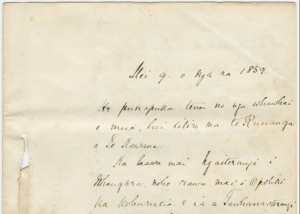 The Hocken Collections is a magnificent cultural treasury and part of the university’s library system. Within its collections are a number of untranslated Māori-language manuscripts that many researchers are unable to read. MAOR427 (He Tuhituhinga) is a paper in which students read and analyse Māori-language historical texts, with all discussion and assessment done i roto i te reo Māori. One of the mahi was to transcribe and translate a 1859 14-sheet letter written by Te Rūnanga o Awataha to the Governor concerning Māori history in Bay of Plenty. The students were able to give their work back to the Hocken as a resource for future researchers. Assoc Prof Lachy Paterson teaches MAOR427.
The Hocken Collections is a magnificent cultural treasury and part of the university’s library system. Within its collections are a number of untranslated Māori-language manuscripts that many researchers are unable to read. MAOR427 (He Tuhituhinga) is a paper in which students read and analyse Māori-language historical texts, with all discussion and assessment done i roto i te reo Māori. One of the mahi was to transcribe and translate a 1859 14-sheet letter written by Te Rūnanga o Awataha to the Governor concerning Māori history in Bay of Plenty. The students were able to give their work back to the Hocken as a resource for future researchers. Assoc Prof Lachy Paterson teaches MAOR427.
Seminar on the Samoan Elections
Te Tumu Seminar Series
Talofa lava. Come along to:
“The 2016 Samoan Elections: A Comparative Analysis of Elections in the Pacific Islands Region” (Roundtable Discussion)
Dr. Iati Iati, Senior Lecturer, Department of Politics & Dr. Alumita Durutalo, Lecturer, Te Tumu/Maori, Pacific & Indigenous Studies
Friday 11th March, 2016. 2.00pm – 3.00pm
RS8, Level 2, Te Papakori, Te Tumu/Richardson South Building.
Emma Dunlop-Bennett, a new PhD student in Pacific Studies.
Emma Dunlop-Bennett, a new PhD student in Pacific Studies, visited from Wellington recently. Emma is supervised by AP Jenny Bryant-Tokalau and Dr Michelle Schaaf, and her topic is ‘Strengthening Pasifika early childhood education through a Pasifika-developed model’.
Emma’s working background is as Country Director of World Vision Vanuatu, and as Programme Manager in NZAID and MFAT, largely in the Pacific. She has also worked in the Family Planning Association (NZ), and in Rural Development in Zimbabwe. Emma will be based in Wellington but will visit Te Tumu several times a year.
Seminar on Fijian Politics
Dr Alumita Durutalo’s seminar on “The Politics of Security and Insecurity in Fiji” has been rescheduled. This will now be held 2.30pm, 28 October, in CEN3, in the Central Library.
Dr Lyn Carter – Te Wiki o te Reo Māori
Ko Te Wiki o te Reo Māori tēnei wiki.
Hei hāpai i te kaupapa, kei te Whare Pukapuka Pokapū he whakaaturanga nō ngā mahi rangahau a Tākuta Lyn Carter: he whakaaturanga ā-tuhi, he whakaaturanga kōataata hoki. Ko ‘Whakapapa: hei herenga tangata ki te whenua’ te ingoa.
Kei te Uare Hākena he whakaaturanga e pā ana ki ngā take hauora Māori mai i te tekautau 1950 tae atu ki nāianei.
Hei te te wā ō o te Rāmere (te 31 o Hōngongoi) ka tū hoki a Dr Lyn Carter rātou ko Ahorangi Tuarua Jacinta Ruru ko Dr Lisa Te Morenga ki Te Aka (i te papa-ki-raro o te Whare Pukapuka) kōrero ai mō ā rātou rangahau. He āhua poto ngā kauhau, 10-15 meneti mō tēnā, mō tēnā.
Dr Lyn Carter‘s research is currently being featured at the university’s Central Library as part of Te Wiki o te Reo Māori. This will be in the form of both a static display as well as a slide show presentation. This is entitled ‘Whakapapa: hei herenga tangata ki te whenua: Whakapapa: connecting people to the land’
There is also a display relating to Māori health issues from the 1850s to the present day.
On Friday 31 July Dr Lyn Carter, Associate Professor Jacinta Ruru and Dr Lisa Te Morenga will be giving lunchtime floor-talks at Te Aka, on the ground floor of the Central Library. Each presentation will be 10-15 minutes in length.
New PhD Scholarship opportunity
PhD Scholarship on Peace Traditions in Aotearoa/New Zealand
Applications are now being sought for a one-off 3-year PhD scholarship to investigate Indigenous peace traditions in early New Zealand. The scholarship, funded under the Marsden Research Project, “A New Politics of Peace? Investigations in Contemporary Pacifism and Non-violence”, provides a NZD$25,000 annual stipend and covers tuition fees for a period of three years. The successful applicant will be based within the National Centre for Peace and Conflict Studies (NCPACS), University of Otago, New Zealand, and supervised by Professor Richard Jackson (NCPACS), Professor Murray Rae (Theology) and Dr Michael Stevens (History).
Research Proposals which explore the following topics are particularly welcome:
- The influence of Christianity in the emergence of Māori nonviolent resistance traditions;
- The subjugation of Māori peace traditions by settler society in nineteenth-century New Zealand;
- The instances and causes of Māori groups avoiding conflict during the New Zealand Wars;
- Māori resistance to conscription during World War One.
If you are interested, contact Professor Richard Jackson of NCPACS for details. Application deadline: Friday 3 July, 2015.
Research Success for Te Tumu Staff
The New Zealand Centre of Research Excellence, Ngā Pae o Te Māramatanga, has been refunded for 2016-2020 . Although Ngā Pae is hosted through University of Auckland, it has now been organised in conjunction with other institutions. One of the new co-directors is Associate Professor Jacinta Ruru from Law Faculty at the University of Otago. At Te Tumu: School of Māori, Pacific and Indigneous Studies we are proud that four of our staff members are among the confirmed Principle Investigators, Research: Professor Paul Tapsell, Associate Professor Poia Rewi, Associate Professor Merata Kawharu, and Dr Lyn Carter.

